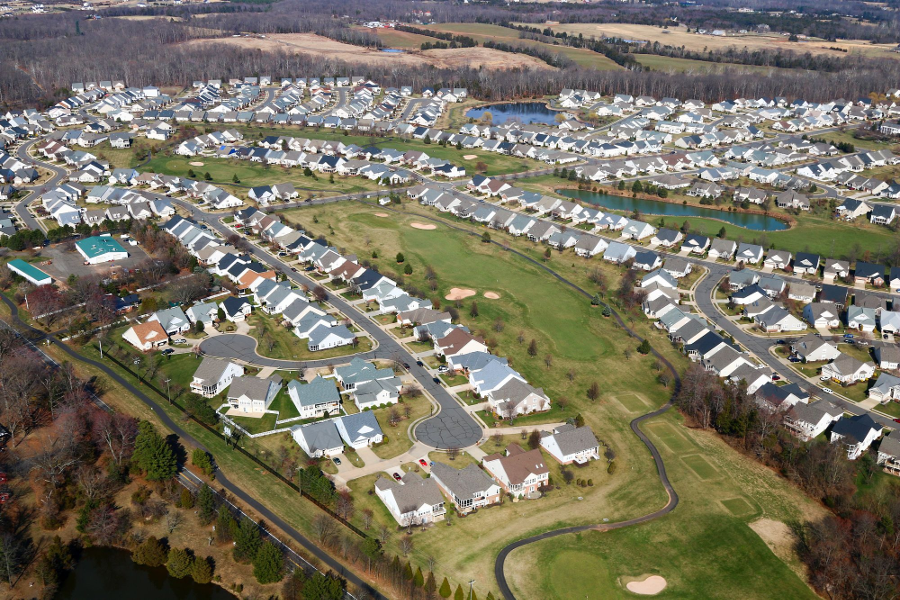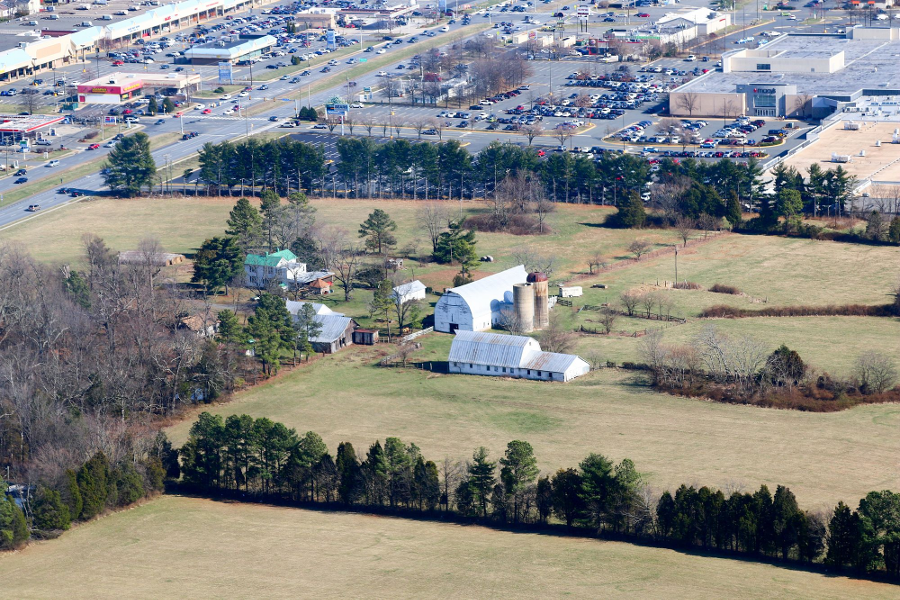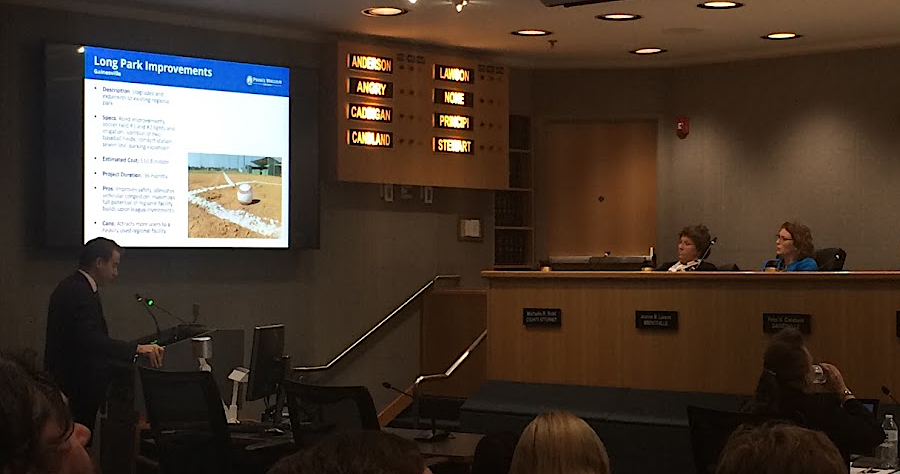
local officials make the zoning decisions that determine where new subdivisions may be constructed
Source: Historic Prince William, Settlers Trail Place - #299

local officials make the zoning decisions that determine where new subdivisions may be constructed
Source: Historic Prince William, Settlers Trail Place - #299
Local governments are creatures of the state, established as subordinate units of the state. According to the State Supreme Court, following the Dillon Rule, counties, cities, and regional governmental organizations (such as planning districts and Metropolitan Planning Organizations) can exercise control over growth and development only through those authorities specifically identified by state law.
The Virginia Municipal League includes all 39 cities in the state, 155 towns and 14 urban counties (see membership). For 2000, the VML Policy Statements include the following:
PLANNING AND LAND USE
Planning and land use control are two of local government's most important functions. VML believes that localities should maintain control of local land use decisions and that neither the state or federal government should usurp a locality's power to make such decisions. All localities should be guided by their comprehensive plan for future development.
The General Assembly should enhance local government's ability to implement their carefully developed comprehensive plans by authorizing a complete spectrum of land use and growth management tools and should allow localities more creative, locally initiated planning and land use mechanisms. Examples of land use and growth management tools that localities should be authorized to use include impact fees, including the authority to finance the cost of growth and offset local infrastructure costs attributable to development; proffers; transferable development rights and adequate facility ordinances.
VML supports the state's exploration of sustainable development, provided that there is not an effort to supplant the authority of local governments to determine their own land use policies, and encourages the consideration of incentives for localities to implement sustainable development approaches.
State agencies should be required to comply with local comprehensive plans and local land use regulations and policies, subject to override by the governor.
The General Assembly should give localities the authority to remove abandoned/blighted structures in a more timely manner by reducing the lengthy procedures of identifying and notifying all owners and lien holders of the property.
Further, VML supports strengthening the minimum housing maintenance code. To this end, VML requests the General Assembly to adopt a resolution requesting the State Board of Housing and Community Development to study the issue of strengthening the minimum housing maintenance code.
VML supports legislation to allow localities to pass on to property owners the cost of the removal or repair of graffiti or other defacement undertaken by the locality. VML opposes legislation that would restrict or preempt present land use powers of local governments to establish, modify and enforce zoning classifications.
VML should seek amendments to Code of Virginia, 15.2-2307 (as amended by SB 570 in the 1998 session) to make it clear that the new vested rights law is prospective only and further, to ensure that local governments have the authority to amend zoning ordinances in the future.
The state should not enact any legislation, under the name of private property protection law, that seeks to weaken local powers to regulate land uses and protect the community s health, safety and welfare, or that requires additional compensation beyond the interpretation of the Fifth Amendment of the U.S. Constitution and Article I, section II of the Virginia Constitution.
The General Assembly should adopt legislation to codify the proposition recognized by the Virginia Supreme Court that real property of local governments shall be exempt from liens created by statute or otherwise.
The Virginia Association of Counties (VACo) is less overt in its policy. This may reflect the reluctance of rural counties to support controls on growth. Residents in rural areas place a higher priority on protecting private property rights ("a man's home is his castle, and his farm is his to subdivide as he sees fit...") and are less exposed to the negative impacts of uncontrolled growth.
VACo policy statements include:

private property owners choose if, as well as when, to develop their land - as demonstrated by the farm next to Manassas Mall
Source: Historic Prince William, Old Lewis F. Ashby Farm - #328

county supervisors make decisions on local issues, such as purchase of land for local parks